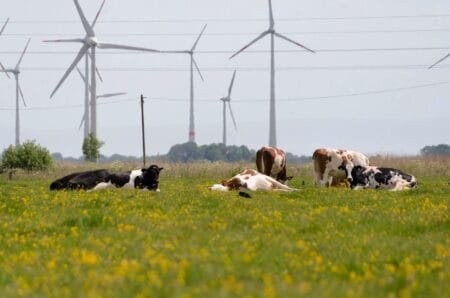(BRUSSELS) – The European Commission issued its spring semester package Monday, providing guidance for EU Member States’ economies to break free from the impact of COVID and Russia’s invasion of Ukraine.
The Spring 2022 Economic Forecast projects the EU economy to continue growing in 2022 and 2023. However, while the EU economy continues to show resilience, Russia’s war of aggression against Ukraine has created a new environment, exacerbating pre-existing headwinds to growth, which were previously expected to subside. It also poses additional challenges to the EU economies related to security of energy supply and fossil fuel dependency on Russia.
The ‘REPowerEU’ plan, announced last week, is about rapidly reducing dependence on Russian fossil fuels moving towards a ‘more resilient energy system’.
“Russia’s invasion of Ukraine has undoubtedly put Europe into extraordinary economic uncertainty. This has resulted in significantly higher prices for energy, raw materials, commodities and food, and is hurting consumers and businesses,” said EC vice-president Valdis Dombrovskis: “With this European Semester Spring package, we are looking to sustain Europe’s economic recovery from the pandemic, and simultaneously phase out our strategic dependence on Russian energy before 2030.”
The country-specific recommendations adopted in the context of the European Semester provide guidance to Member States in responding to persisting and new challenges and deliver on shared key policy objectives. This year, they include recommendations for reducing the dependency on fossil fuels through reforms and investments, in line with the REPowerEU priorities.
The activation of the general escape clause of the Stability and Growth Pact in March 2020 allowed Member States to react swiftly and adopt emergency measures to mitigate the economic and social impact of the pandemic. Coordinated policy action cushioned the economic blow and paved the way for a robust recovery in 2021.
According to the EU executive, policies to mitigate the impact of higher energy prices and support those fleeing Russia’s military aggression against Ukraine will contribute to an expansionary fiscal stance in 2022 for the EU as a whole.
It says that the specific nature of the macroeconomic shock imparted by Russia’s invasion of Ukraine, as well as its long-term implications for the EU’s energy security needs, call for a careful design of fiscal policy in 2023. Fiscal policy should expand public investment for the green and digital transition and energy security.
Full and timely implementation of the RRPs is key to achieving higher levels of investmentFiscal policy should be prudent in 2023, by controlling the growth in nationally financed primary current expenditure, while allowing automatic stabilisers to operate and providing temporary and targeted measures to mitigate the impact of the energy crisis and to provide humanitarian assistance to people fleeing from Russia’s invasion of Ukraine. Moreover, Member States’ fiscal plans for next year should be anchored by prudent medium-term adjustment paths reflecting fiscal sustainability challenges associated with high debt-to GDP levels that have increased further due to the pandemic. Finally, fiscal policy should stand ready to adjust current spending to the evolving situation.
The Commission considers that the conditions to maintain the general escape clause of the Stability and Growth Pact in 2023 and to deactivate it as of 2024 are met. Heightened uncertainty and strong downside risks to the economic outlook in the context of war in Ukraine, unprecedented energy price hikes and continued supply chain disturbances warrant the extension of the general escape clause through 2023. The continued activation of the general escape clause in 2023 will provide the space for national fiscal policy to react promptly when needed, while ensuring a smooth transition from the broad-based support to the economy during the pandemic times towards an increasing focus on temporary and targeted measures and fiscal prudence required to ensure medium-term sustainability.
The Commission says it will provide orientations on possible changes to the economic governance framework after the summer break and well in time for 2023.
European Semester 2022 Spring Package - background guide
Communication on the main elements of the European Semester Spring Package
Country reports for the 27 Member States
Country-specific recommendations (CSRs) for the 27 Member States
Report under Article 126(3) of the Treaty on the Functioning of the EU
Opinions on the draft budgetary plans of Germany and Portugal
Fourteenth enhanced surveillance report for Greece
Post-programme surveillance reports for Cyprus, Ireland, Spain and Portugal
Proposal for a Council Decision on guidelines for the employment policies of the Member States
Monitoring report on progress towards the UN Sustainable Development Goals in an EU context.








